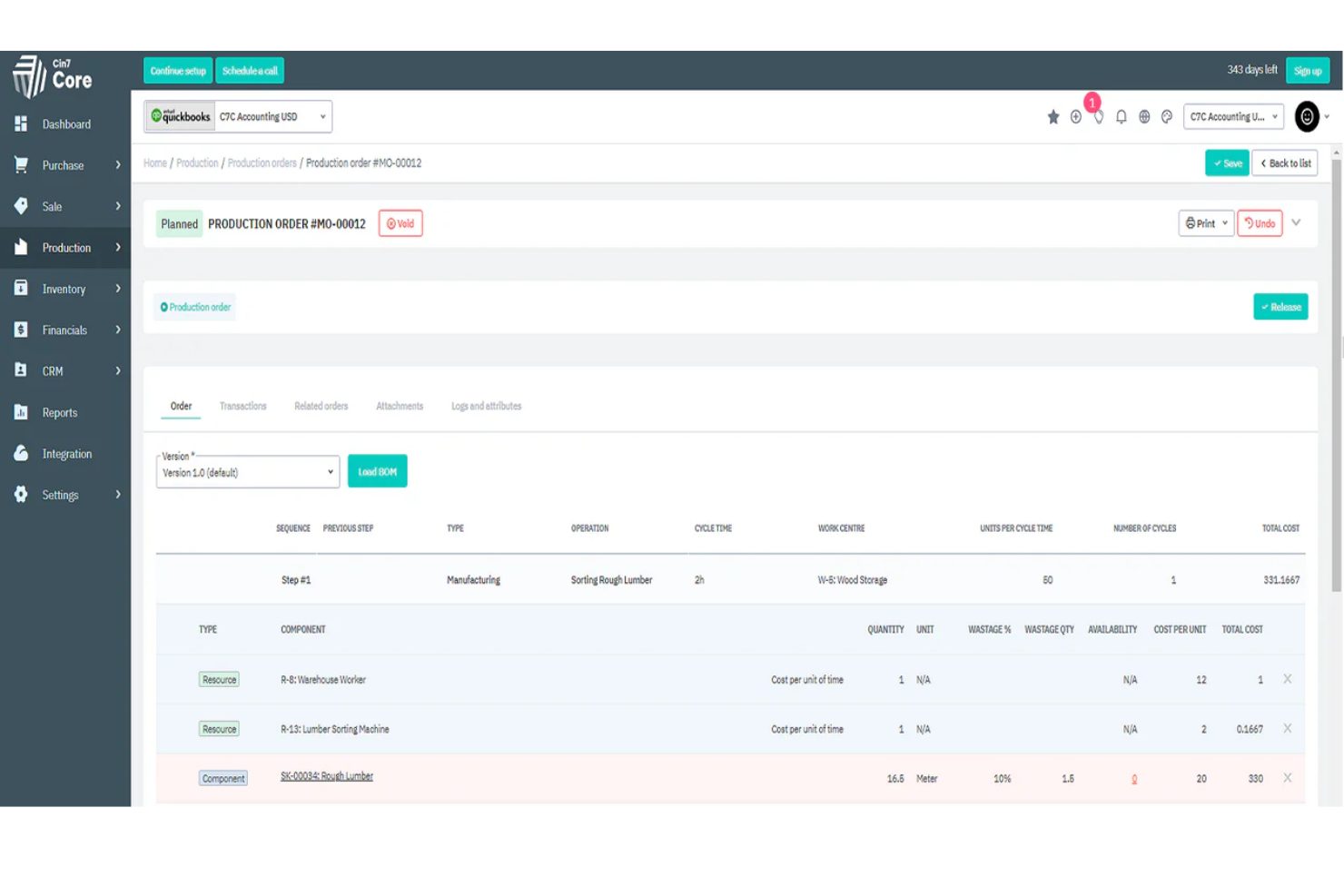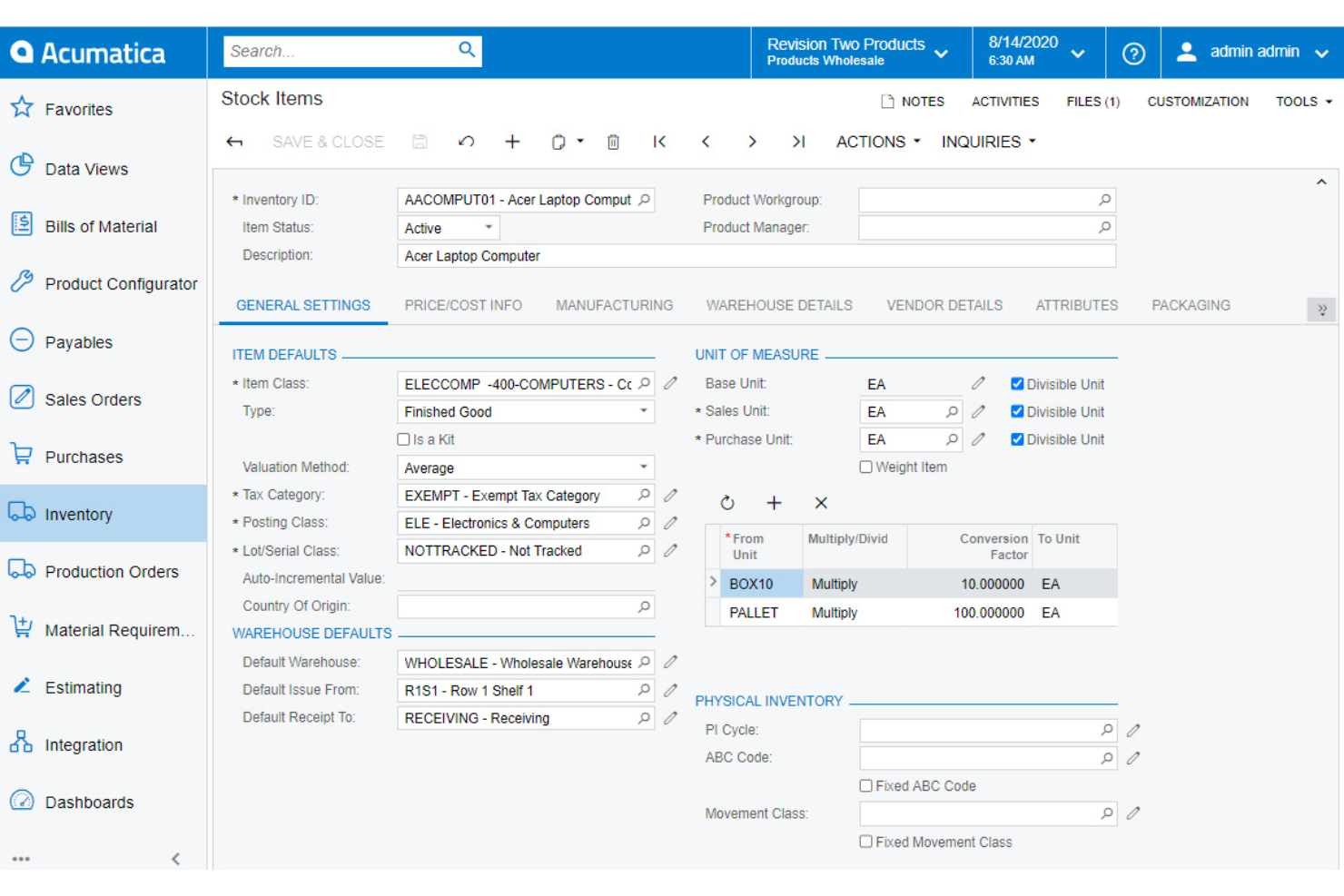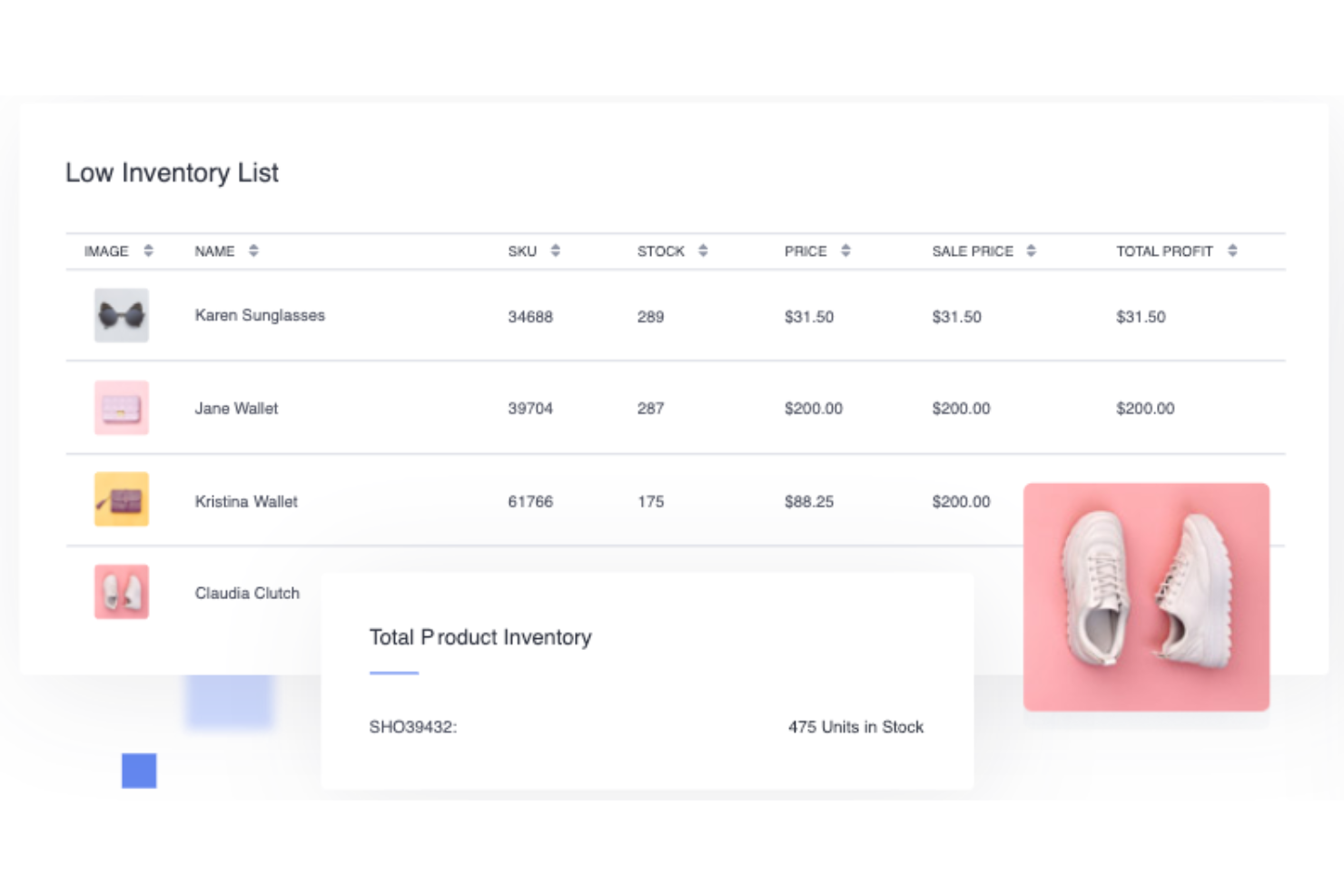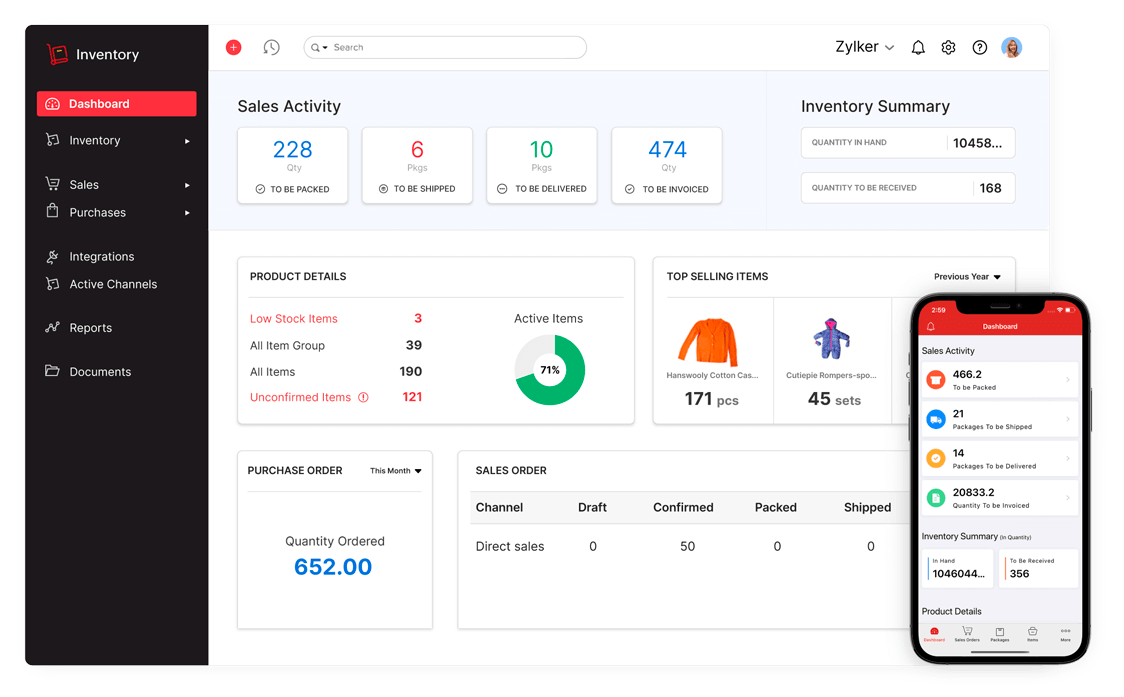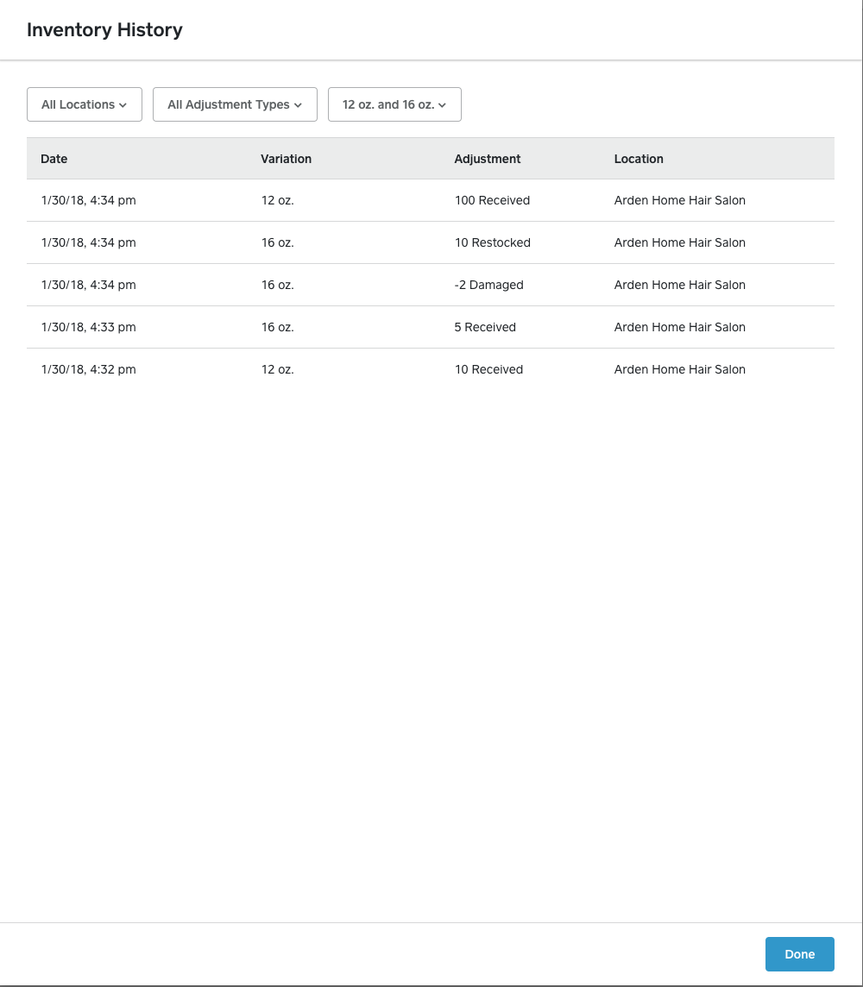10 Best Small Business Inventory Management Software Shortlist
Here's my pick of the 10 best software from the 20 tools reviewed.
With so many different inventory management solutions available, figuring out which one is right for you can be difficult. You know you want to monitor stock levels, streamline order processes, and keep accurate and transparent financial records that meet regulatory requirements but need to figure out which tool is best. I've got you! In this post I'll help make your choice easy, sharing my findings from researching dozens of tools and leveraging my consulting experience with similar software with my picks of the best small business inventory management software.
What is small business inventory management software?
Small business inventory management software is a tool used to track stock levels, manage orders, and generate reports, catering specifically to the inventory needs of small businesses. Features that support this include inventory tracking, order management, barcode scanning, real-time stock updates, and reporting.
Overall, inventory management software ensures that financial controllers can analyze CoGS, keep an eye on cash tied up in inventory, project future expenses, revenues, and working capital needs, allowing for effective financial planning.
Overviews Of The 10 Best Small Business Inventory Management Software Options
The following overviews highlight each tool’s notable features, price, free trial offers, and some high-level pros and cons.
Cin7 Core is an all-in-one inventory management system tailored for small businesses that operate across multiple sales channels. It is designed to accommodate the needs of manufacturers and product sellers, offering a suite of tools that include inventory management, point of sale, B2B portal, and commerce integration.
Why I picked Cin7 Core: The software's comprehensive inventory management system enables real-time tracking and control of stock levels. It also offers seamless integrations with leading e-commerce platforms to facilitate efficient management of online and offline sales channels. For retail operations, the integrated POS system ensures inventory accuracy and sales data synchronization. Overall, Cin7 Core's multi-channel support helps businesses respond more efficiently to demands, which can be otherwise difficult with limited resources.
Cin7 Core Standout Features and Integrations
Features include automated tasks, notifications, reports, and workflows, to help save time spent on human resources. Other notable features include real-time reporting and forecasting so you can understand specific trends for optimizing your operations.
Integrations include Shopify, Amazon, WooCommerce, BigCommerce, Magento, Etsy, eBay, Walmart, Quickbooks, and Xero.
Pros and cons
Pros:
- Good video demonstrations for tutorials
- Customizable reports
- Ability to manage inventory in multiple warehouses
Cons:
- May be pricey for small businesses
- May not be the best for scaling
Linnworks is a comprehensive, cloud-based order and inventory management solution designed to automate and streamline operations for small to medium-sized businesses across multiple sales channels.
Why I picked Linnworks: As small business inventory management software, Linnworks excels in offering robust features that simplify stock control, order processing, and multichannel selling, enabling businesses to focus more on growth and less on manual tasks.
Linnworks Standout Features and Integrations
Features include automated reordering which prevents stockouts with automated reorder points – key for maintaining optimal inventory levels. Its detailed reporting provides insights into sales and inventory trends which is useful for informed decision-making.
Integrations include eBay, Amazon, Shopify, Magento, WooCommerce, BigCommerce, Royal Mail, FedEx, UPS, and DPD.
Pros and cons
Pros:
- Offers comprehensive reporting for strategic planning
- Automates repetitive tasks, saving time and reducing errors
- Streamlines multichannel sales and inventory management
Cons:
- Complicated pricing structure
- May have a learning curve for new users
MRPeasy stands as a leading cloud-based software solution tailored for small businesses seeking efficient inventory management coupled with ERP functionalities. It streamlines operations by integrating various business processes such as production planning, CRM, procurement, and sales into a unified platform. Designed with small businesses in mind, MRPeasy offers a cost-effective, user-friendly approach to managing inventory, ensuring businesses can optimize their operations without the complexity typically associated with ERP systems.
Why I Picked MRPeasy: In the realm of small business inventory management software, MRPeasy excels by offering real-time inventory tracking, seamless integration with production planning, and a comprehensive overview of stock levels, orders, and deliveries. This allows businesses to maintain optimal inventory levels, reduce waste, and improve overall efficiency, making MRPeasy an excellent choice for small businesses aiming to streamline their inventory management practices.
MRPeasy Standout Features and Integrations
Features include built-in quality management functionalities, which is a standout feature for a platform targeting small businesses. This allows companies to implement quality control processes directly within their inventory and production workflows, ensuring products meet standards without the need for separate, potentially costly, quality management systems.
Integrations include QuickBooks, Xero, Shopify, Magento, WooCommerce, Salesforce, Mailchimp, Zapier, Google Drive, and Slack, among others.
Pros and cons
Pros:
- Limited customization options for specific business needs
- Comprehensive integration options enhance operational efficiency
- Affordable pricing makes it accessible for small businesses
- User-friendly interface simplifies inventory management
Cons:
- May have a learning curve for some users
Acumatica Cloud ERP is a cloud-based enterprise resource planning (ERP) software that provides integrated business management tools for various industries and company sizes. It is a modular system that includes solutions for financial management, project accounting, customer relationship management (CRM), payroll, reporting, and inventory management.
Why I picked Acumatica Cloud ERP: The software's ability to connect across multiple modules and workflows makes it ideal for small businesses looking to manage their inventory and other business functions in one place. For example, a sales order can automatically update inventory levels and inform the purchasing module if additional stock is needed, simultaneously updating financial records in real-time. As an inventory management software, it also offers features for physical inventory, pricing, discounts, promotions, customer and vendor items, packaging, and shipments
Acumatica Cloud ERP Standout Features and Integrations
Features include real-time tracking of inventory levels, automated replenishment orders, quality traceability with lot and serial control, and flexible warehouse location management. It also offers project accounting, payroll and financial management, and robust reporting and analytics dashboards.
Integrations include Amazon, Shopify, BigCommerce, Heuristyc, Transcard, Velixo, EazyStock, Celigo, DataSelf Corp, 1Retail, ShipEngine, ADP, and more.
Pros and cons
Pros:
- Robust reporting system
- Extensive customization options
- Highly scalable
Cons:
- Initial learning curve at setup
- Customization process can be complex
Helcim is a multifaceted payment processing and business management platform designed to streamline operations for small to medium-sized businesses.
Why I picked Helcim: Helcim offers a robust, intuitive system that simplifies stock tracking, management, and sales processes. It enables seamless product categorization, real-time inventory updates, and detailed reporting, providing businesses with the tools needed for precise inventory control and decision-making.
Helcim Standout Features and Integrations
Features include in-built CRM tools, allowing businesses to manage customer data, track interactions, and enhance customer service without the need for additional software. It also provides highly customizable invoicing features and diverse payment options, including QR code payments, enhancing the flexibility and efficiency of accepting payments.
Integrations include QuickBooks, Xero, Salesforce, Zapier, Magento, Shopify, WooCommerce, BigCommerce, SquareSpace, and WordPress.
Pros and cons
Pros:
- Provides accessible customer support services
- Simple and easy-to-use
- Transparent pricing plans
Cons:
- Services may not be available in all regions
- Limited advanced features for large businesses
LightSpeed’s inventory management software integrates with the company’s other offerings, including POS software, making it a strong all-in-one solution.
Why I picked Lightspeed Inventory Management: Lightspeed offers both an inventory management tool and POS, making it a great choice for retailers that want a single, combined solution. With its low learning curve and useful automations, I think most physical and online retailers could benefit from the service.
Lightspeed Inventory Management Standout Features and Integrations:
Standout Features include tracking of inventory levels across multiple sales channels and locations, product variation tracking that lets you manage multiple product sizes or options, built-in purchasing tools, and stock-out alerts.
It also has customer loyalty tools that I think would be very helpful for attracting and keeping repeat customers.
Integrations include Lightspeed’s POS system, AppCard, Astro Loyalty, Amaka, Drizly, Lendio, Zettle, and a few others.
Pros and cons
Pros:
- eCommerce integrations for online sales
- Dedicated account manager
- Works with Lightspeed POS
Cons:
- Cheapest plan doesn’t support eCommerce
- Requires annual contract for best price
Odoo Inventory is a low-cost (or entirely free) open-source inventory management program that offers more advanced features for an additional fee.
Why I picked Odoo Inventory: Odoo Inventory’s free inventory tracking software gives businesses multi-warehouse tracking, automated order placement, and stocking efficiency analysis. Or for a monthly fee, you can combine it with Odoo’s other tools.
Odoo Inventory Standout Features and Integrations:
Standout Features include double-entry inventory tracking, fully automated stock replacement, and reporting tools.
One feature I think would be incredibly useful is the efficient stock analysis tool, which can help you figure out the optimal level of inventory to carry to keep costs low.
Integrations include Odoo’s other services, such as accounting, HR, CRM, and POS.
Pros and cons
Pros:
- Extensive user guides and tutorials available
- Financial reporting capabilities
- Free to use a single service
Cons:
- Limited function without Odoo’s other services
- Complex onboarding
Zoho Inventory offers a low-cost inventory management tool that I think is very easy to use. Despite its low learning curve and price, it has all of the features you’d expect and need.
Why I picked Zoho Inventory: Zoho Inventory made the list because it’s one of the best values in inventory management software, offering a completely free service for very small businesses and numerous price plans that you can move to as you expand.
Zoho Inventory Standout Features and Integrations:
Standout Features include multi-currency support, automated shipping label creation and package tracking, and 24/7 support. I think the shipping label creation and tracking are particularly helpful if you plan to make a lot of e-commerce sales.
Integrations include Zoho’s other business software, such as Zoho Books accounting software, Shopify, Amazon, Etsy, eBay US, FedEx, UPS, and other shipping providers.
Pros and cons
Pros:
- Automates portions of the shipping process, like printing labels
- Integrates with other Zoho tools
- Free plan available for small businesses
Cons:
- Limited integrations
- You’ll be forced to upgrade to more expensive services as your order volume grows
Square offers free inventory management services with its POS system, which seems especially convenient for companies that are already using Square’s POS.
Why I picked Square: Square’s inventory management software is quite easy to use, and it comes as a free addition to the company’s POS service. It’s simple to set up and works well for both physical and digital retailers.
Square Standout Features and Integrations:
Standout Features include a built-in POS service, unlimited item tracking, cross-location stock tracking, and barcode label printing.
I thought the inventory forecasting tools seemed particularly helpful, giving you a way to figure out what your stock levels will look like in the future and to place new orders before you run out of stock.
Integrations include OpenTable, HomeBase, Postmates, Ritual, Marketman, PEachworks, Quickbooks, and more.
Pros and cons
Pros:
- No limit to the number of items you can track
- Automated low-stock alerts
- Built-in POS system
Cons:
- Higher levels of service can get pricey
- Limited reporting options
Megaventory is on the pricier side of things for small businesses, but it offers some unique and useful features that manufacturers, in particular, will benefit from.
Why I picked Megaventory: Megaventory is an inventory management solution designed specifically for manufacturing companies. I feel that its unique offerings, including the ability to make bills of materials, cost different manufacturing processes, and allocate components to work orders
Megaventory Standout Features and Integrations:
Standout Features include inventory management and order fulfillment automations, manufacturing-focused services like production costing, and multi-currency support. Production costing is highly valuable for manufacturers to help make sure you’re pricing goods properly.
Integrations include Zapier, Magneto, WooCommerce, Shopify, Quickbooks, and more.
Pros and cons
Pros:
- Customized reports
- Discounts for nonprofits
- Designed for manufacturers (bills of materials and product costing features)
Cons:
- Limited number of users
- High price (mandatory $1,500 onboarding fee)
| Tools | Price | |
|---|---|---|
| Cin7 Core | From $349/month | Website |
| Linnworks | From $449/month (volume-based pricing) | Website |
| MRPeasy | From $49/user/month | Website |
| Acumatica | Pricing upon request | Website |
| Helcim | From 0.50% + $0.25 per transaction | Website |
| Lightspeed | From $99 per month | Website |
| Odoo Inventory | From $24.90/user/month. | Website |
| Zoho Inventory | From $79/month. | Website |
| Square | From $36/month plus 2.9% + $0.30 per transaction | Website |
| Megaventory | From $135/month. | Website |

Compare Software Specs Side by Side
Use our comparison chart to review and evaluate software specs side-by-side.
Compare SoftwareOther Options
There are a lot of options in the world of small business inventory management. If you’re not certain that one of my above choices is right for you, consider these alternatives.
Selection Criteria for Small Business Inventory Management Software
To create my list of the best small business inventory management tools, I started by looking at a range of companies and programs to compare their services, function, price, and other factors.
When ranking these programs, I used these factors.
Core Functionality
To get a spot on the list of my best inventory management software, the program needed to work with some obvious tasks: It has to allow for the entry of many items, track stock levels and update them as products sell or are received, generate reports about inventory levels over time and notify you when stock is running low, and ideally offer forecasting for future inventory use.
Key Features
Having the basic functions needed to work is important for any inventory management system, but there are other key features that helped tools win a spot on the list.
- Integrations with POS systems. Good inventory management tools work seamlessly with popular POS services or have a built-in POS system that automatically updates inventory levels with each sale.
- Integrations. Many inventory management programs also work nicely with tools like accounting software or CRM tools. That reduces the workload of moving data from one program to another.
- Barcode generation and scanning. Inventory software should be able to generate barcodes for different products and offer a way to scan them to quickly get details about the product and stock levels. This can make it much easier to update stock levels based on sales and purchases of new stock.
- Order automation. When you run low on inventory, it’s important to know about it. It’s even better if your inventory management software can place the order to restock without you having to do anything!
- Fulfillment. It’s a huge help if your inventory management software can help you print shipping labels, track orders, and do other fulfillment tasks.
- Multi-channel support. An inventory management system should be flexible enough to handle a retailer that sells goods in-person and online.
Usability
Any piece of business software is designed to help your business accomplish a task more quickly, easily, and accurately. Inventory management software is no different, so it’s key for it to be easy to use so you can actually reap those benefits.
Some programs have a bit of a learning curve, but they often make up for it with advanced reporting features, forecasting, and other tools. I looked for software that was relatively easy to use once you got over the learning curve without sacrificing function.
Price
Most inventory management tools charge a monthly fee, often based on the number of products you want to track or, in the case of tools that help with fulfillment, the number of orders that you process per month. Some come as add-ons for POS systems, which means the cost can depend on other factors.
Smaller companies can expect to pay $15 - $30 per month for an inventory management solution, though free options are available. Larger companies will pay more, sometimes $200 - $400 or more if they have a lot of orders to fulfill.
Support
If your inventory management system breaks, it can shut down your entire operation, making it all but impossible to find the products you have on hand or to deal with shipping and other fulfillment tasks.
Having customer support that is readily available and a reputation for being helpful is key to ensuring that problems are dealt with swiftly.
People Also Ask
Here are answers to some of the most common questions people have about inventory management software.
What are the must-haves for inventory management software?
Any inventory management software needs to have basic functions like the ability to track how much stock you have for different products. Beyond that, it depends on the nature of your business.
For example, a large online store will probably find software that helps with shipping and fulfillment to be essential. Smaller physical retailers won’t need that feature.
Is inventory management software secure?
Inventory management software has a lot of data about your business, including the value of your products, how much inventory you have on hand, and when you tend to place new orders. It could have customer or supplier contact details. It’s important to keep that information safe from malicious actors.
To keep your company’s data safe, inventory management software providers use industry-standard security practices. You should also make sure that you only allow trusted employees to access the tools.
How much does inventory management software cost?
Inventory management software can vary in price, with simple solutions being $15 per month or even free. Advanced programs can cost hundreds per month.
How do I go about finding the right small business inventory management software for my company?
Finding the right small business inventory management software means thinking carefully about what your business’s needs are. You should focus your search on the tools that meet those needs.
For example, a restaurant could benefit from an inventory management tool that has recipe costing functions to help you figure out how to price different dishes. A dropshipper will want a program that focuses on order fulfillment. A warehousing business could benefit from one that can help analyze your warehouse layout and optimize it.
Once you have a sense of your needs and what tools could be a good fit, check to see if they offer a free trial or demo. Take the time to use these to test out the different products and see which you think works best.
What can I expect in small business Inventory management software?
Inventory management software, at its most basic level, helps business owners manage and track the items they have in their inventory. When integrated with your POS system, inventory management software updates inventory stock levels as products are sold.
Many inventory management tools also come with e-commerce features that can help you automatically print shipping labels and forecast future customer demand. Plus, automations can be set up to re-order products whenever the amount you have on hand drops below a certain quantity.
Conclusion
Inventory management software is a key tool for any company that sells products or that needs supplies to offer a service to customers. Hopefully, now you’re a little closer to choosing the right one for your team.
For more business insights and the latest industry tech, sign up for our newsletter for resources and advice from financial leaders.


